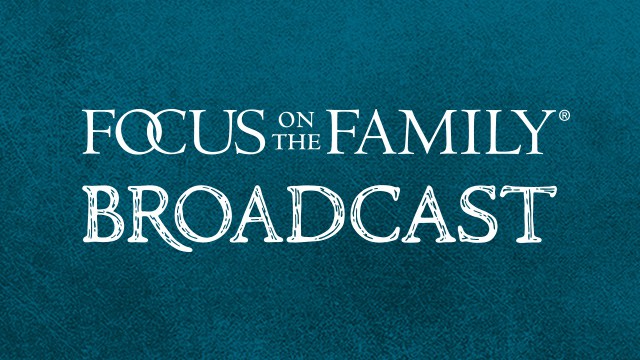
Dinner: Nourish Your Family … As a Family
There’s plenty of evidence that making dinner together a family priority is definitely worth the effort.

Has your teen decided to “give up the faith”? Get insight into how parents can engage with their prodigals.
When your teen is wrestling with their faith, it can feel like the foundation of your home is trying to crack. I’ve been there.
My eyes unexpectedly caught a colorful, professionally printed poster hanging in church: “Atheists have a national holiday!”
Then I read the punchline: “April Fools’ Day!” Ha ha.
While most people moved past the poster without a second thought, I stood still in front of it, riveted, with a surprising twist in my gut. The mocking tone tapped into something that had once made me sad — being shut down and dismissed by my church community while I wrestled with serious doubts about my faith.
During my teen years, I’d gone through a period of significant questioning that led to 13 years of atheism. I was able to make my way back to the foot of the Cross, but my years without faith left me with a heart for those who doubt, who have unpopular questions, whose mounting frustrations may render them intense and off-putting to others.
If your teen has declared that he’s done with God, it can feel like an explosion in your home. There may be anger, arguments and fear. Let’s put your understandable fears in a box for the moment and talk about how you, as a parent, might better navigate these waters.
Mark and Shannon were blindsided when their teenage daughter, Madison, proclaimed her atheism. Of all their kids, Madison had shown the most tender, sincere love for Jesus.
So when Madison shared her new worldview, they pleaded and argued with her. Every conversation invariably turned to her lack of belief, growing more heated and intense each time. Their relationship with Madison began to suffer.
Mark and Shannon’s anxiety for their child caused them to turn most every interaction into a “Save Madison Project.” Not surprisingly, Madison grew weary and resentful. In her mind, her parents saw her as a colossal spiritual failure and nothing more.
Mark and Shannon began to learn that they needed to stay connected with their daughter as a whole person. They had to engage in plain old conversation, asking her about her plans for the future, her friends, her favorite books, her new sewing project, her interest in vegetarianism. They needed to share a meal, a laugh, and let Madison know how precious she was to them, whether or not she shared their faith. If they could pursue a full and genuine relationship with Madison, they would likely be more able to engage in productive discussions.
At some point you’ve likely found yourself in a discussion about the evidence for God’s existence or the problem of evil, and found that you’ve run out of good responses. You’ve given a few solid explanations, which have always been perfectly adequate for you. But when they aren’t enough for your doubtful teenager, you may become aggravated at your limitations made public. That’s when you may pull out one of these conversation-stopping gems:
You just don’t have enough faith.
Are you really seeking the truth?
You need to accept it; it’s a mystery of God.
Maybe you’re just angry at God.
It’s okay to admit you’ve reached the end of your confident knowledge base and that you’ll find other resources to take the conversation further. Allow your teen the comfort of knowing that none of us reaches a point of having all the answers. Only God gets to make that claim. Live out the truth of that now-famous D. T. Niles quote: “Evangelism is just one beggar showing another beggar where to find the bread.”
When your teen throws a dismissive or angry statement your way, don’t take the easy route of throwing something back. Instead, lean in, ask questions and explore the new worldview that has led to such a statement. Try using the L-I-T-E method.
L – Listen, all the way to the end. Don’t interrupt. Think of it like a computer download, in which you wait till the little progress indicator has reached 100 percent. You can’t interact with a new idea until it’s been fully presented.
I – Interpret. Repeat back to your teen what you believe he or she is saying. “If I’m hearing you correctly, your position is . . .” Then put it in your own words.
T – Tag it with an emotion. Use a word that shows you understand your teen’s genuine feelings. “That must be frustrating.” “I can see how that would be infuriating.” “That’s actually pretty weighty.”
E – Explain your position. “Now that I think I understand your position, would it be OK if I shared my thoughts on your views?”
Here’s the thing: If your teen feels she’s truly been heard, she is much more likely to hear you in return.
When fulfilling the directive of 1 Peter 3:15, “Always [be] prepared to make a defense . . .” don’t neglect the final instruction to “do it with gentleness and respect.”
The journey into and then out of atheism is seldom a short one. You must prepare yourself for a long walk. My parents waited 13 long years for me. There is an ugliness to atheism that can take some time for young people to discover. But all philosophies without a compass pointed at truth are doomed to fail. At some point your teen, likely as an adult, may reach a point when he recognizes that his new worldview simply isn’t reasonable. When that happens, he is looking for answers. Make sure there’s a bridge back home where he can bring his questions.
Additional Resource
How to talk to young people about doubt – Fuller Youth Institute
Carol Barnier is the author of Engaging Today’s Prodigal.

Listen to the broadcast about parenting a prodigal by Carol Barnier